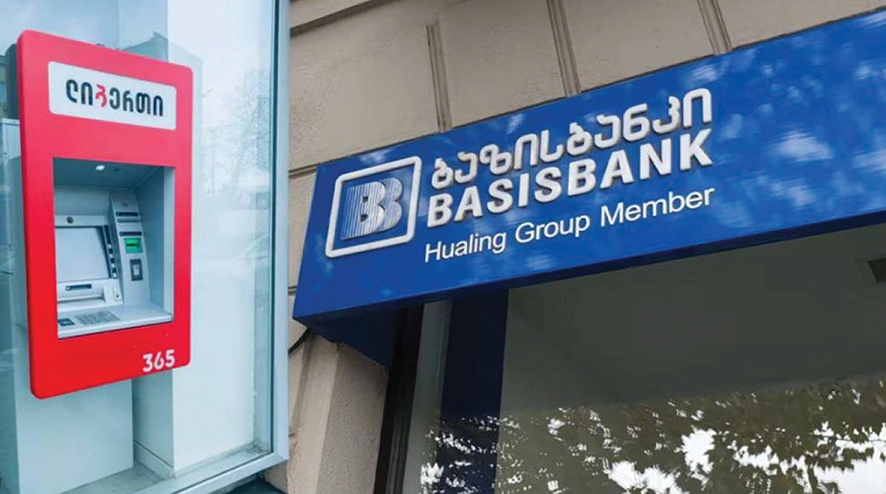A technical press release announced something that might look like a dry financial reshuffle: the acquisition of Liberty Bank by BasisBank, with approval from the National Bank of Georgia. Yet every merger of this scale is more than an accounting exercise; it is also a cultural and anthropological moment.
Banks, after all, are not only financial institutions, they are repositories of trust, arbiters of memory, and regulators of daily life, shaping the way societies imagine time, risk, and security. To analyze the BasisBank–Liberty merger only in terms of market shares—10.1%, conveniently below the 15% regulatory threshold—would miss its deeper resonance in Georgia’s social fabric.
In his classic The Great Transformation (1944), Karl Polanyi argued that markets are “embedded” in society, rather than existing as independent, rational mechanisms. Financial institutions are perhaps the most striking examples: they regulate not just flows of money, but the rhythms of social reproduction.
Liberty Bank, with its role in distributing pensions and social benefits, has been less a bank in the capitalist sense than a quasi-state organ—a channel through which elderly citizens, rural communities, and the socially vulnerable receive their monthly lifelines.
A pension disbursed through a bank account may seem mundane, yet it encapsulates entire geopolitical shifts
To place such an institution under new ownership—particularly ownership connected to foreign capital—transforms more than the balance sheets. It changes how the state imagines its social contract. When pensions are wired through a bank, the act is not simply economic but symbolic: it is the state’s ritual of care, mediated by a financial intermediary. In this sense, Liberty Bank has been part of Georgia’s “infrastructure of solidarity.”
The fact that BasisBank is controlled by Hualing Group, a Chinese conglomerate, introduces an additional dimension. In global terms, Chinese corporate expansion into finance echoes earlier waves of European and American banking dominance in smaller markets. Just as in the 19th century the Rothschilds shaped railway expansion in Austria, or as Citibank became a crucial node in Latin American economies in the 20th, today Beijing-linked capital networks project influence across post-Soviet space.

For Georgia, the Liberty acquisition raises questions about sovereignty. The economist Ha-Joon Chang has noted that banks in developing economies often serve as “developmental institutions” rather than pure profit-seekers. When foreign groups control these levers, the domestic ability to align financial flows with national priorities diminishes. A pensioner in Kutaisi may never ask who ultimately owns her bank card, but the symbolic relocation of control—from Tbilisi to Amsterdam and now to Shenzhen—marks a shift in what Benedict Anderson might have called the “imagined economic community” of Georgia.
The backdrop to BasisBank’s rise cannot be ignored. Its earlier acquisition of VTB Georgia’s assets was a direct consequence of Russia’s invasion of Ukraine and the sanctions regime that followed. Here we see what historian Fernand Braudel called the longue durée of financial capitalism: geopolitical shifts ripple through local markets, replacing one empire’s capital with another’s. Where once Moscow-linked money dominated, now Chinese capital fills the void.
The trust once reluctantly extended to Russian-linked institutions is now being renegotiated with Chinese ownership structures, whose long-term intentions in the Caucasus remain opaque
This substitution is not neutral. For Georgian society, it represents a reorientation of dependencies. The trust once reluctantly extended to Russian-linked institutions is now being renegotiated with Chinese ownership structures, whose long-term intentions in the Caucasus remain opaque.
What does all this mean for the ordinary Georgian? Imagine an elderly woman in Batumi withdrawing her pension at a Liberty ATM. For her, the merger is invisible. Her relationship is not with “Hualing” or “Amsterdam Holding Groups” but with the bank teller who greets her by name. Yet the sociologist Georg Simmel reminds us that money is the “purest expression of trust.” When that trust is mediated by increasingly abstract corporate entities, the fragile thread connecting citizen, state, and institution is stretched thinner.
In this sense, mergers reshape the “social contract of trust.” Each rebranding, each shift in ownership, subtly changes the phenomenology of everyday financial life. What had once been Liberty Bank—the very name resonating with post-Soviet aspirations—will now be folded into an entity with origins in transnational capital.
The BasisBank–Liberty deal is less about percentages than about narratives. It situates Georgia within a new global cartography of finance, where Chinese corporate groups expand their presence while European shareholders retreat. It highlights the ongoing transformation of banks from local community institutions into nodes of international capital flows. And it reminds us that in societies like Georgia, where banks mediate not just wealth but welfare, the cultural meaning of a merger may exceed its economic significance.
To borrow from Michel Foucault, power often operates through the “micro-physics” of everyday life. A pension disbursed through a bank account may seem mundane, yet it encapsulates entire geopolitical shifts. The Liberty acquisition is thus not merely a financial transaction. It is an inscription of Georgia’s social future into the ledger books of global capital.
By Ivan Nechaev














